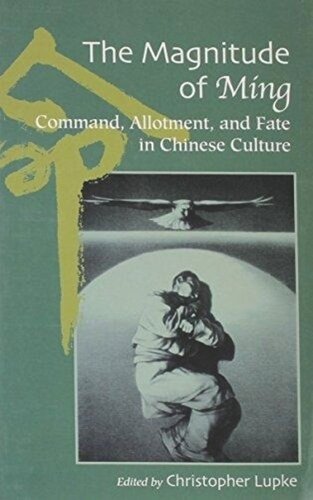

Most ebook files are in PDF format, so you can easily read them using various software such as Foxit Reader or directly on the Google Chrome browser.
Some ebook files are released by publishers in other formats such as .awz, .mobi, .epub, .fb2, etc. You may need to install specific software to read these formats on mobile/PC, such as Calibre.
Please read the tutorial at this link: https://ebookbell.com/faq
We offer FREE conversion to the popular formats you request; however, this may take some time. Therefore, right after payment, please email us, and we will try to provide the service as quickly as possible.
For some exceptional file formats or broken links (if any), please refrain from opening any disputes. Instead, email us first, and we will try to assist within a maximum of 6 hours.
EbookBell Team

0.0
0 reviewsFew ideas in Chinese discourse are as ubiquitous as ming, variously understood as command, allotted lifespan, fate, or life. In the earliest days of Chinese writing, ming was already present, invoked in divinations and etched into ancient bronzes; it has continued to inscribe itself down to the twenty-first century in literature and film. This volume assembles twelve essays by some of the most eminent scholars currently working in Chinese studies to produce the first comprehensive study in English of mings broad web of meanings. The essays span the history of Chinese civilization and represent disciplines as varied as religion, philosophy, anthropology, literary studies, history, and sociology. Cross-cultural comparisons between ancient Chinese views of ming and Western conceptions of moira and fatum are discussed, providing a specific point of departure for contrasting the structure of attitudes between the two civilizations.
Ming is central to debates on the legitimacy of rulership and is the crucial variable in Daoist manuals for prolonging ones life. It has preoccupied the philosopher and the poet and weighed on the minds of commoners throughout imperial China. Ming was the subject of the great critic Jin Shengtans last major literary work and drove the narrative of such classic novels as The Investiture of the Gods and The Romance of the Three Kingdoms. Confucius, Mencius, and most other great thinkers of the classical age, as well as those in ages to come, had much to say on the subject. It has only been eschewed in contemporary Chinese philosophy, but even its effacement there has ironically turned it into a sort of absent cause.
Contributors: Stephen Bokenkamp, Zong-qi Cai, Robert Campany, Woei Lien Chong, Deirdre Sabina Knight, Christopher Lupke, Mu-chou Poo, Michael Puett, Lisa Raphals, P. Steven Sangren, David Schaberg, Patricia Sieber.